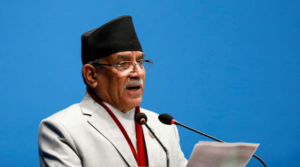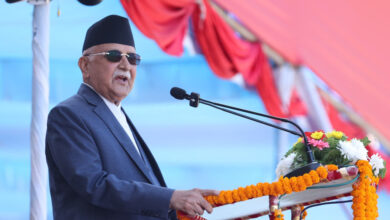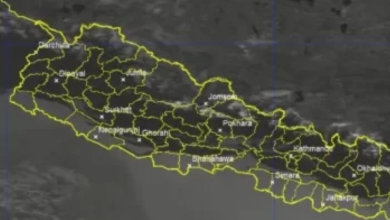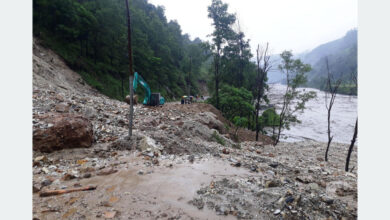Nepal’s Prime Minister Secures Vote of Confidence Amidst Ongoing Political Turmoil
In a testament to the political volatility gripping Nepal, Prime Minister Pushpa Kamal Dahal secured a vote of confidence in parliament on Wednesday. This development transpired just a week after Dahal forged his third coalition government in over a year, dominated by the liberal communists.
Dahal, a former Maoist guerrilla leader, has been navigating the challenging political landscape in Nepal, nestled between China and India. Last year, he formed a coalition cabinet, which included the Nepali Congress party and other smaller groups. However, recent shifts in alliances prompted Dahal to establish a new coalition, emphasizing the need for a free hand in governance.
The latest cabinet is marked by the prominent presence of the liberal Nepal Communist Party (UML) and several smaller factions. Parliament Speaker Dev Raj Ghimire announced that Dahal secured 157 votes in the 275-member parliament, surpassing the 138 required for a vote of confidence. However, 110 lawmakers voted against him.
Expressing his frustration in parliament, Dahal alluded to being let down multiple times, necessitating the formation of a new coalition cabinet—a routine political process, according to the prime minister. The Nepali Congress, now the main opposition party, accused Dahal of deception following last week’s break-up, citing the abrupt removal of the party from the cabinet without prior notice.
A former leader of a decade-long insurgency that resulted in 17,000 deaths, Dahal transitioned to mainstream politics under the 2006 peace deal overseen by the United Nations. This marks his third stint as prime minister, though he has yet to complete a full five-year term.
Nepal has grappled with political instability since the abolition of its 239-year-old monarchy in 2008. The nation has witnessed 13 different governments during this period, hindering economic growth and contributing to a significant exodus of young Nepalis seeking opportunities abroad.
The geopolitical landscape is further complicated by Nepal’s intricate ties with India, a key donor, and China’s efforts to establish alliances through aid and infrastructure investment in Kathmandu. As Nepal continues to navigate a complex political terrain, the consequences of these dynamics resonate both domestically and internationally.





